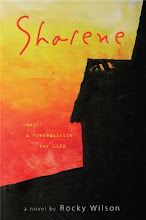Although the size and beauty of Victoria Falls makes it one of the seven natural wonders of the world, there’s little else of beauty in the African country of Zimbabwe.
With an average lifespan of about 45 years, Zimbabwe has the lowest life expectancy rate of any country in the world, currently experiences 80 percent unemployment, and in 2008 had an inflation rate calculated at 11.2 million percent. Men, women, and children are being exploited commercially for sexual purposes, and neighboring South Africa and Botswana are going to great lengths to prevent Zimbabwean refugees from entering their countries.
Dates, facts, and points of interest about the Republic of Zimbabwe include:
* 500,000 years ago, human remains from that date
* 200 BC Khoisan tribe earliest settlers
* Shona, Nguni, Zulu tribes rule
* Early 1500s Portuguese explorers make contact with Shona-dominated states, begin trading for gold
* 1850s First British explorers, colonists, and missionaries arrive
* 1889 British South Africa Company, under Cecil Rhodes, drafts charter to promote commerce, colonize region
* 1896-97 Shona, Ndebele tribes stage unsuccessful revolt against British
* 1923 Becomes self-governing British colony named Rhodesia
* 1965 White-ruled Rhodesia declares independence from Britain
* 1980 Multiracial elections held; Blacks in power under leadership of Robert Mugabe; country renamed Zimbabwe
* 2002 Mugabe orders all White commercial farmers to relinquish land without compensation
* 2005 In what many believe to be retribution against dissenters, Mugabe razes urban slums and shantytowns, leaving 700,000 homeless
* 2008 Presidential challenger Morgan Tsvantirai, citing violence against his supporters and inability to hold a fair election, withdraws from race; Mugabe wins another term
* 2009 Deal arranged where Mugabe remains as president, Tsvantirai as prime minister: Mugabe’s political party retains majority in parliament; he appoints all Cabinet members; and Mugabe maintains control over military
A landlocked nation just north of South Africa, Zimbabwe is slightly larger than the state of Montana, and the home for about 11.4 million people, nearly all of them of African descent.
Even with inflation spiraling out of control and millions of Zimbabweans living off of foreign humanitarian assistance, about 90 percent of the nation’s adult population is literate, having an average nine years of schooling.
South Africa is Zimbabwe’s chief import and export partner, but sales of platinum and cotton out of the country and the importation of machinery and transport equipment into Zimbabwe have been stalled by Zimbabwe’s impossible inflation rate and inability to pay debts.
Although Mugabe defends his 2002 decision to place the land back into the hands of the African majority, many outside nations say that action was pivotal in pointing Zimbabwe’s economy, where two-thirds of its labor force is agriculture based, on a downward trend.
With South Africa protecting its borders with armed patrols and Botswana having erected electric fences, people living in the African country of Zimbabwe have little hope of escaping what looks to be the hellish conditions they live in.





